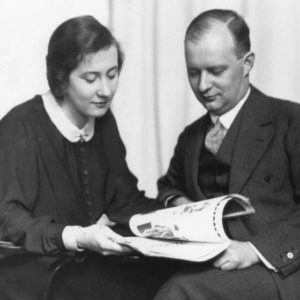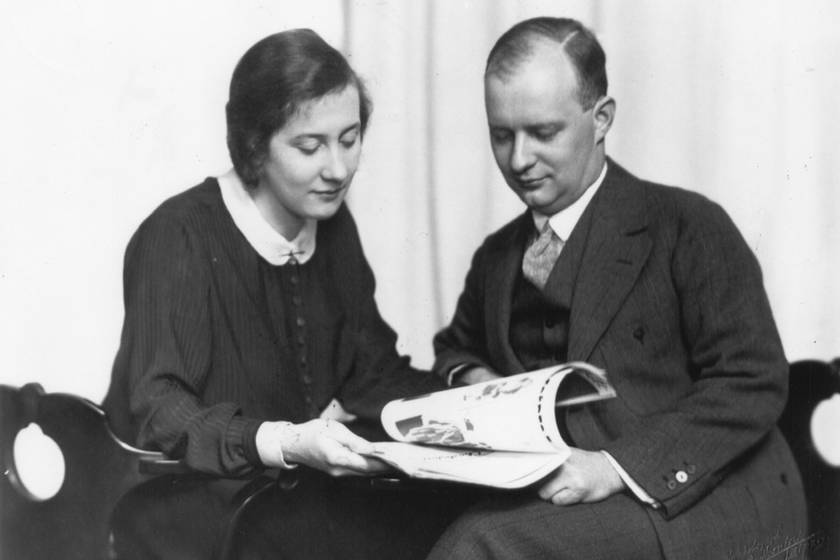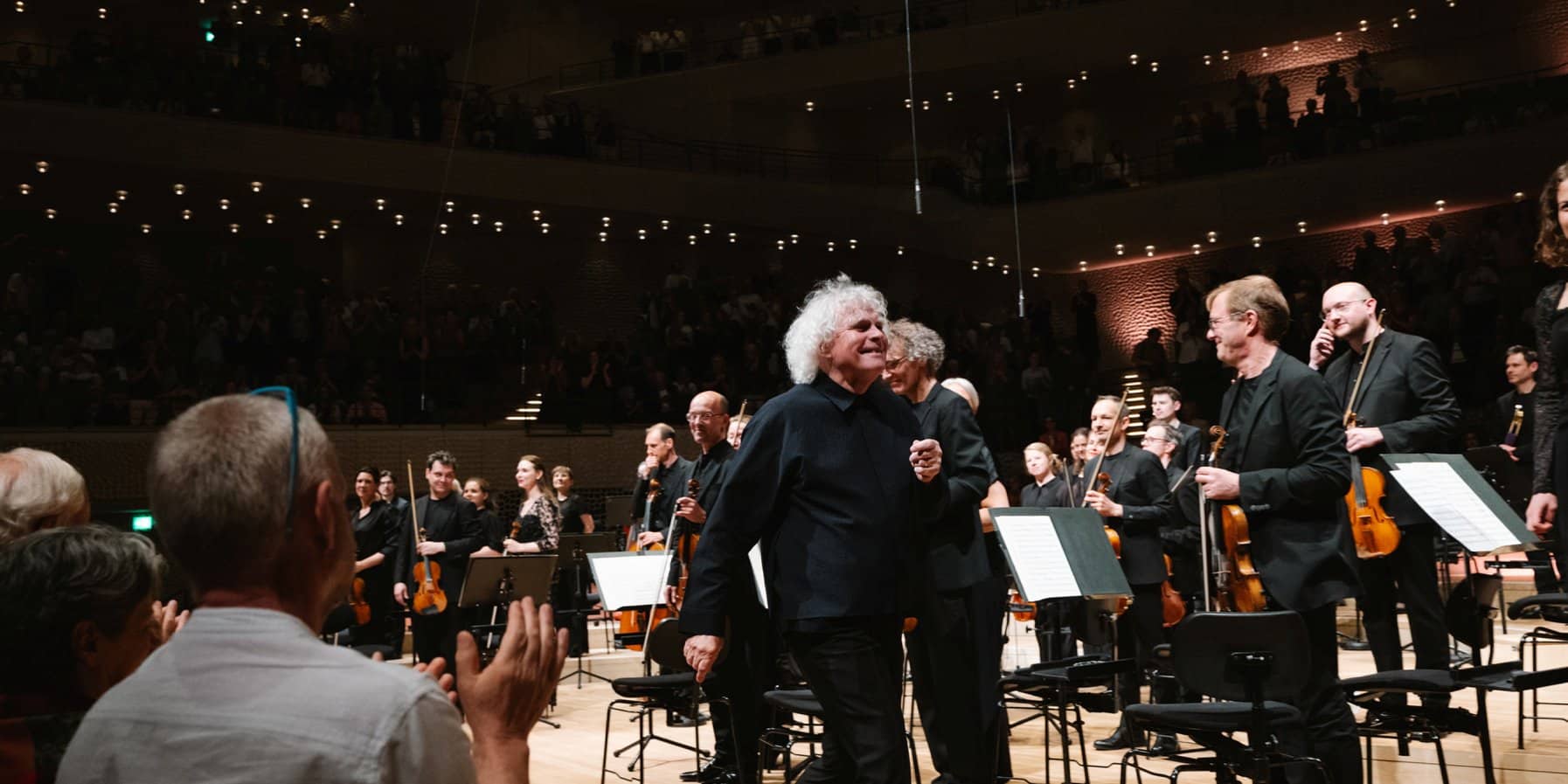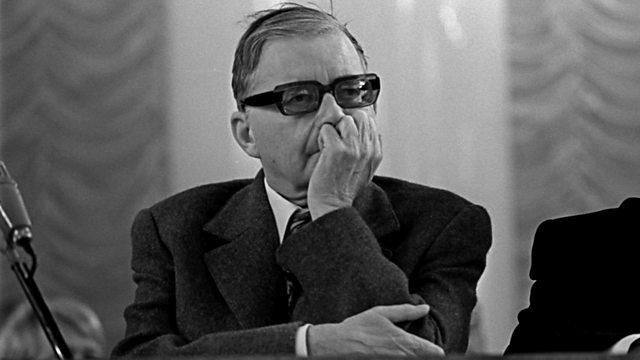Hindemith’s biggest fan
NewsThe composer Paul Hindemith was born 126 years ago today.
The pianist Glenn Gould said: ‘My first experience of contemporary music was via Paul Hindemith. I was 15 at the time, a complete reactionary, I hated all music after Wagner and suddenly I heard ‘Mathias der Maler’, in a recording with Hindemith conducting, and flipped completely.’







‘Mathis der Maler’ is one of the 20th century’s greatest symphonies, worthy to stand comparison with any of Sibelius’ or Nielsen’s, if not maybe with Elgar’s or Walton’s 1st.
I would appreciate your thoughts on Mathis der Maler. Here is a selection of 11 comments from opera critics over the past 50 years.
1) ‘Mathis der Maler’ is not an easy opera to hear. The austere, almost academic passages, the skewed fugues and quirky counterpoint, can sound more like arguments than like opera. Its surfeit of didactic musical and textual discussion will, in all likelihood, prevent its ever becoming part of the standard repertoire.
2) Mathis der Maler is a sanctimonious bore, way overlong and diffuse. It has always been considered box office poison — much too difficult to appeal to casual operagoers. Listeners should get obscurity points for pretending to love it.
3) Mathis der Maler is obsolete, musically irrelevant, and dramatically rather insignificant. It is not surprising that this work never resonated with public.
4) A rarity shunned by the world’s opera houses, probably because it would get the better of even the most hardened insomniac.
5) Mathis der Maler is a third rate German opera that is musically inane and even worse than that major operatic yawniac, Hans Pfitzner’s “Palestrina”.
6) I loathe Mathis der Maler, which I find ponderous, dour and musically uninteresting…. It’s cultural, I guess.
7) Mathis der Maler is, for the most part, a justifiably obscure work. Many long stretches of genuinely pedestrian music.
8) Mathis der Maler is not the sort of thing that will bring tears to your eyes or put you beside yourself with excitement. It is not a score of overwhelming grandeur or even of direct and simple lyricism. The only moment of expressive melody is Regina’s lament at the start of Scene Six…. Elsewhere, there is simply a continuation of Hindemith’s familiar pseudo-Bach contrapuntal mastery grinding away more or less meaninglessly in low gear. I am afraid that Mathis der Maler is a bore.
9) Mathis der Maler is thick and drawn-out, with three and a quarter hours of music in seven tableaux, in a musical language of intimidating polyphonic and contrapuntal mastery. The infectious vitality displayed in his earlier operas is almost completely absent here. Only in the last (seventh) tableau does the composer’s formidable inspiration surface.
10) Mathis der Maler is a curious work and very different from Hindemith’s earlier operas. The score, even at its best, leaves one almost continually aware of problems and cerebrations. If only heaven had bestowed on this composer warmth of heart and a lyrical faculty when it dowered him so plentifully with brains, systems and counterpoint.
11) The best music in the score is undoubtedly in the opening prelude (Concert of Angels), the interludes and the final 20 minutes of the opera. The rest of the piece is discursive and drab. It outstays its welcome because Hindemith was not an instinctive musical dramatist. I won’t feel deprived if I don’t see it again for another 100 years.
Question.
Why do you think Hindemith’s great opera has not had more currency? And why does it seem like most editors and critics wish to keep it from receiving the exposure it so clearly deserves?
Instructive, I think, that “will” praises the Symphony, while “Jonathan52” lambasts the opera. In a sense, you are both right. Kubelik’s recording of the opera with DFD in the title role is worth an audition, but the opera will never receive more than a rare staging. The Symphony however, rightfully has a essential place in the orchestral canon.
I lament the many, really worthy pieces of his that are rarely performed, among them, the suite from the ballet Nobilissima Visione (the final passacaglia is something few composers ever achieve) and the Symphonia Serena, especially the third movement for strings, which is astonishing, again, pages like this are an accomplishment few composers are capable of.
He also penned sonatas for just about any instrument you can think of, and horn players, trombonists, tubas, trumpets and bassoons have “their” Hindemith sonatas on the short list of their, admittedly limited, repertoire.
A sad fact well-known to anyone with experience of years of student recitals is that there are in fact simply too many Hindemith Sonatas – resulting in things like this item posted several years ago:
https://www.throwcase.com/2015/04/27/hindemith/
Thanks for these interesting comments. As an amateur, I cannot really analyze my reactions — I simply find it beautiful or powerful for the most part and it moves something in me.
An interesting and worthy topic to ponder – same composer, and much of the same music, yet such different reactions and degrees of general fondness. I conclude that opera needs “something in addition” to just good music (heh – as if “just” good music grows on trees!). I find the Mozart operas as wonderful as all his instrumental music, but while I love all the overtures to Leonora/Fidelio I get hopelessly antsy during the opera itself. I can listen with satisfaction to the most knotted scores of Arnold Schönberg but not to Moses und Aron; ditto for Berg and his Lulu (yet I can enjoy — if that is the right word — lengthy stretches of Wozzeck, so it doesn’t appear to be an anti-opera or anti-vocal bias on my part).
It is odd however that the Mathis opera can contain so much of what makes the Symphony great, yet still not fly, even as there are operas that cling to the repertoire on the basis of a brief aria or two.
I also think it is worth pointing out that the Mathis symphony lasts, what, half an hour? Not so the opera. The mind and the butt become intolerant at about the same rate.
About these critics’ comments: those were the days, that critics dared to be critical about contemporary works and did not fear to appear in the next edition of Slonimsky’s ‘Lexicon of Musical Invective’.
https://www.amazon.com/Lexicon-Musical-Invective-Composers-Beethovens/dp/039332009X
The first piece of orchestral music I heard live (I was 15) was the Concert Music for Strings and Brass (Halle James Loughran), a work I still love. For my 60th birthday I booked to hear Muti conduct it with the Chicago S O in Paris. It deserves to be programmed more often.
That fugue in the 1st video is a very able, even brilliant piece of its kind, but what does it convey? The feeling of a lady who is giving a table speech on a respectable wedding party but realizes she is sitting on a cactus.
Another example:
https://www.youtube.com/watch?v=42M9h4zE-1Y
It is like a tonal Schoenberg, all intellectualism, hammering-in the need of control, without the wide range of expression that the fugue as a form would offer. It all sounds German in the worst sense of the word.
Thanks, John. I hadn’t realized it was that bad. On the plus side, however, it is easy to write invertible counterpoint in this style: just turn it upside down!
He got the idea when his wife, on her daily cleansing spree, once put back one of his compositions on the piano stand but upside-down.
Happy Birthday and all, but if something sounds academic even with one of the greatest pianists ever…
To keep audiences from dozing a Canadian goose honking a few times at strategic points would add interest.
The MdM opera which I have never heard in its entirety consists of over 180 minutes of music (in the classic Kubelik version with DFD as the protagonist). If 27 or so minutes of it (15%) that made it into the MdM symphony is the only really inspired music there while the remaining 85% is mediocre, then the opera overall is not very good. But the MdM symphony – all 27 or so minutes of it – is in my opinion a masterfully crafted and genuinely beautiful, as well as indeed powerful, piece.
Here it is:
https://www.youtube.com/watch?v=o6p3NQ1_wvc
Even the angels sing and play in square, downbeat German cactus counterpoint. Everything in this piece smells of beer.
The theme of the angels’ concert is taken from Schreker’s “Der Geburtstag der Infantin” (1910).
But indeed it is a very, very respectable work. I take off my hat & walk thither.
Both of us are entitled to our opinions. For example, I do like the smell of good beer.
I have nothing against beer, but I don’t want it’s smell emerging from the music and settle in the ears.
Sadly, most American opera lovers have never heard the complete opera, Mathis der Maler. Opera de Paris produced it in 2010, and Zurich Opera did so in 2012. New York City Opera put on a stripped-down version in the 1990’s, and USC staged a student production. The Met? Nowhere to be found, even while Hindemith took refuge from the Nazis by teaching at Yale during World War II. Lyric Opera of Chicago, San Francisco Opera, Houston Grand Opera, Seattle Opera, Santa Fe Opera–every major American company has been missing in action. If a work is not performed, it cannot be evaluated fairly.
It’s certainly not me. Not even a “good” composer. No one listens to his music for good reasons.
What would be ‘good reasons’ for listening to Hindemith? I think if one values control and intellect over fantasy, expression, interiority, imagination, and Nature. Hindemith, in his younger years, was a sporty type: gymnastics, tennis, anything that signified Modern Times and Progress, and offered a route away from handwringing romanticism, grandiloquent philosophizing, and über-sensitive dreaming. Clean! Straight! Fresh air through open windows! White shorts and early showers! Away with the salon and back to the ground with Gebrauchsmusik that everybody can use, whatever instrument he or she plays.